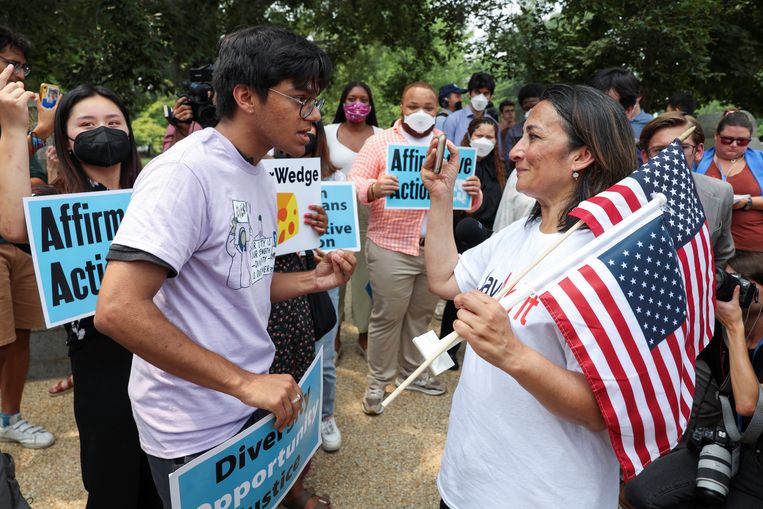
The Supreme Court overturns affirmative action on American universities
The decision ends decades of affirmative action policies on American universities. In the 1960s, then-President Lyndon B. Johnson asked all institutions that received government aid to “affirmative actionaffirmative action, in order to increase diversity.
Subsequently, many universities introduced ethnic quotas, after which the representation of some minorities on campus actually improved. African Americans, Native Americans, and Latinos in particular benefited from this scheme.
But, as is so often the case with quotas, this was also to the detriment of others who felt so disadvantaged. Numerous studies have found that white and Asian students had to get higher grades on average to get into elite universities than did black and Latino students.
‘Unconstitutional’
The fact that Harvard explicitly included race in its admissions procedures is unfair and unconstitutional, according to the Asian-American student group Students for Fair Admissions, for example, which later brought a case against the elite university.
Six conservative justices at America’s highest court have agreed and ruled that admissions procedures based on skin color or ethnicity are unconstitutional. Chief Justice John Roberts said, “University programs should never stereotype race—positively or negatively.”
Conservatives reacted gleefully to the ruling. Former Vice President Mike Pence said, “There is no place for racial discrimination in the United States, and I am pleased that the Supreme Court has ended this flagrant violation of civil and constitutional rights.”
– Fatal error
The three progressive justices — who have outnumbered the court since Trump’s presidency — voted against repealing affirmative action. Justice Sonia Sotomayor, Latin America’s first female Supreme Court justice, called the ruling a “huge mistake” and said it would limit opportunities for people across the country.
Opinions about affirmative action have been deeply divided for years, including among progressive Americans. For although the policy led to more diversity, it would have primarily benefited wealthy students from minority groups, at the expense of poorer students from all population groups.
She expects the ruling to cause many problems for colleges and universities, said Laura Coates, a CNN legal analyst, on the US channel. Because while students can still write about their origins in their admissions essays “through a personal lens,” admissions committees then have to start reading them “colorblind.” “How is it?”

“Pop culture enthusiast. Unable to type with boxing gloves on. Analyst. Student. Explorer.”
